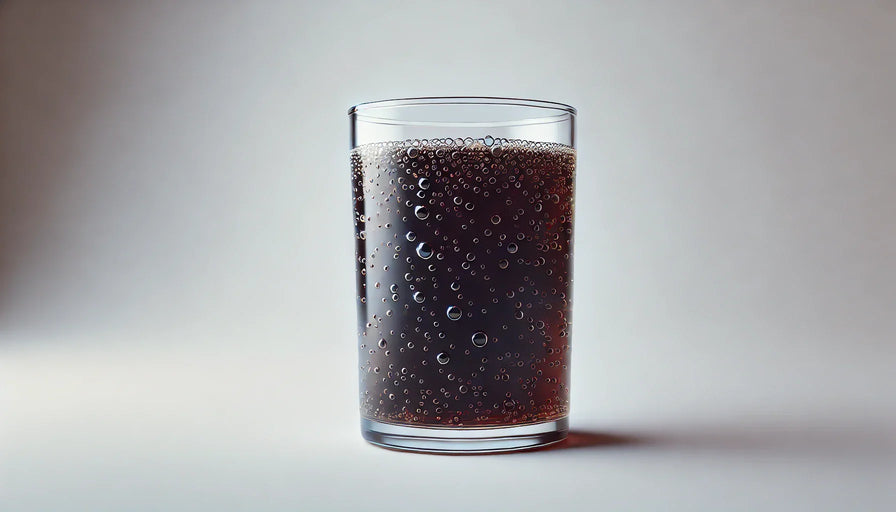
What's the Difference Between Tonic Water vs Mineral Water?

What's the difference between tonic water vs mineral water?
The primary difference between tonic water and mineral water lies in their taste and ingredients, basically natural vs unnatural. While they both fall under the category of carbonated water (if the mineral water is naturally carbonated), each has distinct characteristics that set them apart from the other making them more different than alike.
When it comes to choosing a carbonated beverage, understanding the differences between tonic water and mineral water can help you make a more informed decision.
Although they may appear similar at first glance, these two types of water offer unique flavors and ingredients that cater to different tastes and preferences.
In this guide, we'll explore the key distinctions between tonic water and mineral water, helping you appreciate their individual qualities.
Table of contents
Ingredients in tonic water
Tonic water is a carbonated soft drink that is commonly consumed on its own or as a mixer in various cocktails. It has a distinctive bitter taste due to the presence of quinine, which was originally added for its medicinal properties.
Here are the typical ingredients found in tonic water:
- Carbonated water
- High fructose corn syrup or sugar
- Quinine
- Citric acid
- Natural flavors
- Sodium benzoate
- Sodium citrate
Tonic water typically contains calories between 83-124 per 8-ounce serving. The exact amount may vary depending on the brand and the type of sweetener used.
Related read: Tonic Water vs Sparkling Water: What's the Difference?

Ingredients in mineral water
Mineral water is sourced from natural underground reservoirs and springs, gaining its distinctive taste and health benefits from various minerals. While it can be naturally carbonated, still mineral water is also available.
Common minerals found in mineral water include:
- Calcium
- Magnesium
- Potassium
- Sodium
- Bicarbonate
- Sulfate
- Chloride
Mineral water typically contains a calorie count of zero, making it a popular choice for those looking for a low-calorie drink option.
Related read: Mineral Water vs Sparkling Water: What's the Difference?

Key factors of mineral water compared to tonic water
In understanding the key factors that differentiate mineral water from tonic water, it's essential to delve into their distinct properties. As of 2019, there is estimated to be 34,860 thermal/mineral springs worldwide–making this beverage quite popular!
Here are the core attributes of mineral water compared to tonic water:
- Mineral water is obtained from natural springs and underground reservoirs, offering a natural composition. Tonic water, on the other hand, is a manufactured beverage that includes various additives including forced carbonation.
- Mineral water contains naturally occurring minerals, depending on its geographic source. Tonic water includes additives such as quinine, sweeteners, and flavorings.
- Mineral water has a varied taste profile influenced by its mineral content, which can range from mild to distinctly flavored, sometimes salty. Tonic water has a characteristic bitter/sweet taste mainly due to quinine.
- Mineral water is typically consumed for hydration and its mineral benefits. Tonic water is often used as a mixer in alcoholic beverages, particularly in gin and tonic.
- Mineral water contains no calories, making it a preferred choice for calorie-conscious individuals. Tonic water, however, can contain a significant amount of calories due to added sweeteners.
- The naturally occurring minerals in mineral water can contribute to health in various ways like supporting bone health and balancing electrolytes. Tonic water was historically used for its quinine content to treat malaria, but today its health benefits are limited as it contains high fructose corn syrup and is mainly consumed for flavor.
These distinctions make it easier to choose between mineral water and tonic water based on preferences and desired health outcomes.
Learn more on how mineral water differs from tap water!
Related read: Where Does Mineral Water Come From?

Summary
In summary, while both tonic water and mineral water are similar in some ways, they offer distinct experiences based on their ingredients, taste, and intended use.
Mineral water, with its naturally occurring minerals, can provide a refreshing hydration option with potential health benefits such as electrolyte balancing and bone support. On the other hand, tonic water, known for its unique bitter-sweet flavor due to quinine and added sweeteners, is often enjoyed as a mixer in cocktails, particularly the classic gin and tonic.
Understanding these differences allows consumers to make an informed choice that suits their taste preferences and aligns with their health goals.
Recommended reading

How to Give Back During Thanksgiving 2025
Key takeaways Thanksgiving is a time to express gratitude and share with those in need. From volunteering at local shelters to donating food and essentials, there are numerous ways to give back to...

What Does Carbonation Do to Your Body?
What does carbonation do to your body? Carbonation alone typically has minimal effects; however, it can cause bloating and discomfort for some, and it may worsen acid reflux due to carbon dioxide ...

What Are the Health Benefits of Sparkling Water?
Summary Sparkling water isn't just a refreshing drink—it comes with surprising health benefits too. From aiding digestion to improving hydration, discover how sparkling water can be a healthy addi...